Seaweed extract obtained from brown algae (Ascophyllum nodosum) in seawater can be used as a “biostimulant” in agriculture to increase plant production and improve plant growth. Seaweed extracts can be used as biostimulants during crop cultivation due to their positive effects on plant performance. Seaweed extract acts as an organic bio-fertilizer.
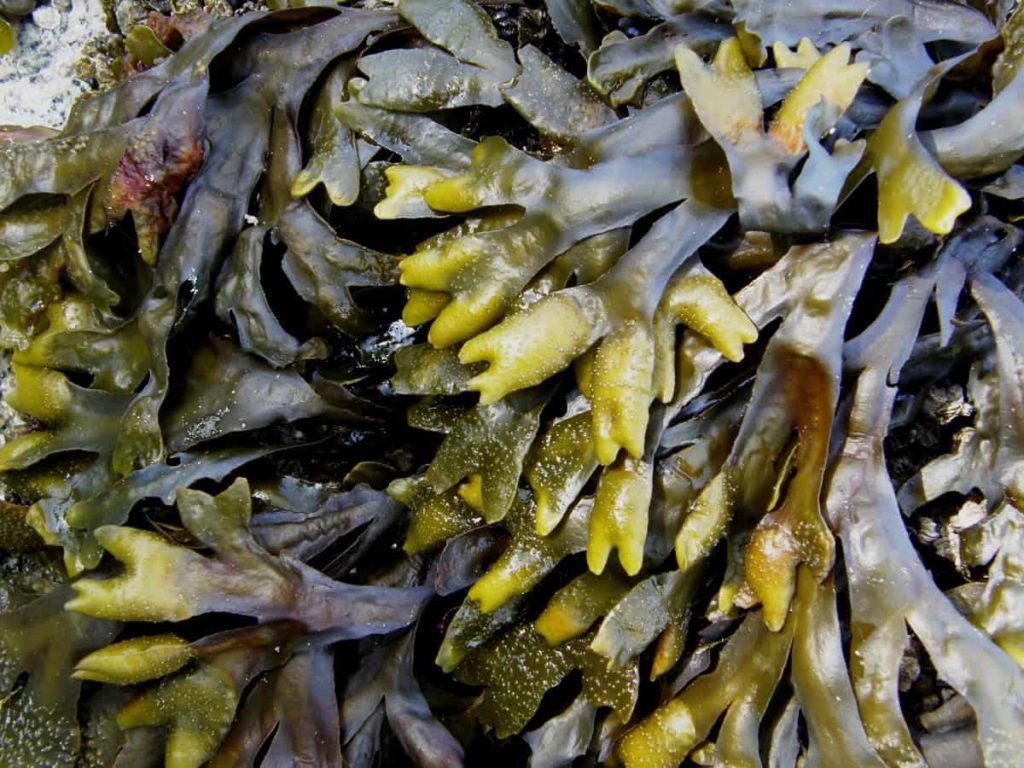
As seaweed is rich in micro and macronutrients, humic acids, and phytohormones, it increases soil fertility. Seaweed fertilizers have the widest range of benefits for plants and plant nutrition. They also promote bacterial activity in soil sources. In addition, they are known to improve root nutrient uptake with the ability to improve plant resistance to diseases, pests, and abiotic stresses.
Seaweed extract uses in agriculture
Benefits of seaweed extract in agriculture
- Improved root growth
- Better nutrition and water intake
- Improved plant growth
- Better fruit set
- Better fruit color
- Better fruit quality and taste
- Increase crop yield
- Promote root growth
- Healthy plant and fruit appearance: thicken, enlarge and balance leaf growth, provide balanced crop nutrients, stimulate cell division, improve fruit set, improve flower and fruit set
- High resistance to diseases and pests: Contains anti-toxins to inhibit bacteria and viruses and repel insects. Helps plants withstand environmental stress.
- Promote shoot growth
- Seaweed extract can not only be used on crops but can also be used to make a variety of fertilizers. Adding seaweed extract (a small amount) to a normal fertilizer significantly increases resistance and improves crop quality and yields.
In case you missed it: How to Make Seaweed Fertilizer, Benefits
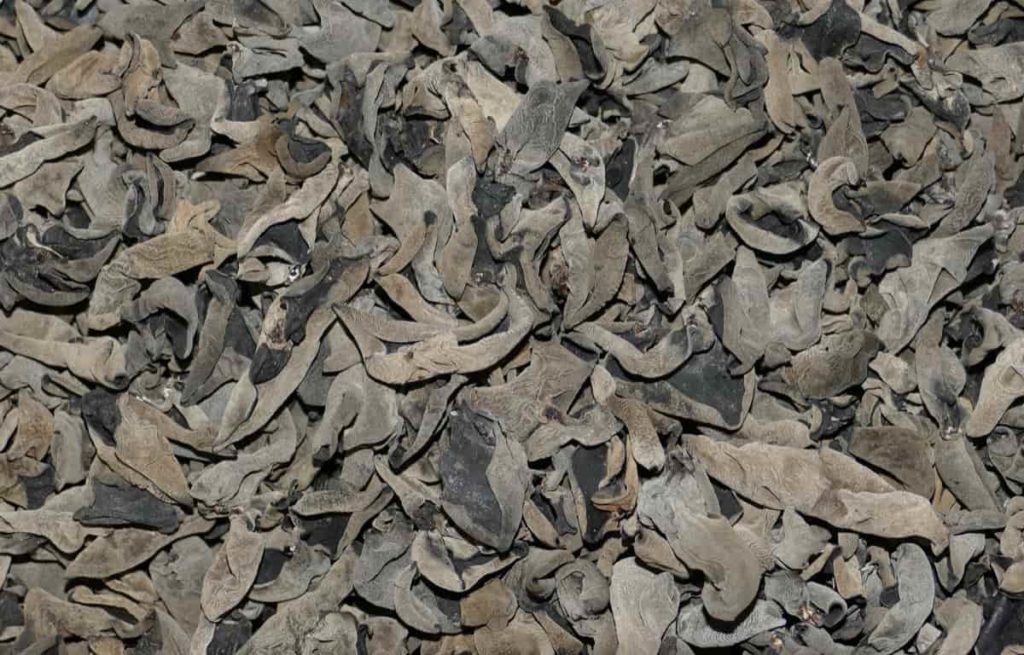
Seaweed extracts production methods
Seaweed extracts are biofertilizers that can also be used as biostimulants to improve nutritional efficiency and tolerance to abiotic stress. New extraction technologies to improve efficiency and seaweed biostimulants are being developed to target the isolation of specific compounds, although the specific extraction techniques are often trade secrets.
Additionally, many liquid fertilizer extraction processes from seaweed can complement other industrial uses, such as carrageenan production, which increases the benefit of the same seaweed crop, and has been shown to improve potassium and sulfur uptake, such as glycine max. Also, brown algae seaweed extract improves Tomato plant growth, crop yield, and environmental stress. Using seaweed as a fertilizer Additional documented benefits include reduced transplant shock, increased leaf surface area, and increased sugar uptake.
Crop production
Seaweed extracts are used in crop production for a variety of benefits. Naturally occurring proteins, lipids, sugars, amino acids, nutrients, vitamins, plant hormones, and other biochemicals in seafood can provide fertility and soil conditioning functions. As a fertilizer, seaweed can provide a natural form of potash (soluble potassium). Non-synthetic forms of seafood products (such as liquids, soluble powders, and meals) are permitted in organic crop production.
Extraction or other processing using water, heat, pressure, or non-synthetic materials is permitted. Seaweed extract can be used as a fertilizer for organic farming methods, while synthetic chemical fertilizers are prohibited for organic food production. Nowadays, seaweed fertilizers are gaining popularity for higher crop yields and improved soil quality. Seaweed extract can be prepared in liquid and powder form and used as a fertilizer for all crops, grasses, and trees.
In case you missed it: How Start-ups are Making Agriculture More Sustainable
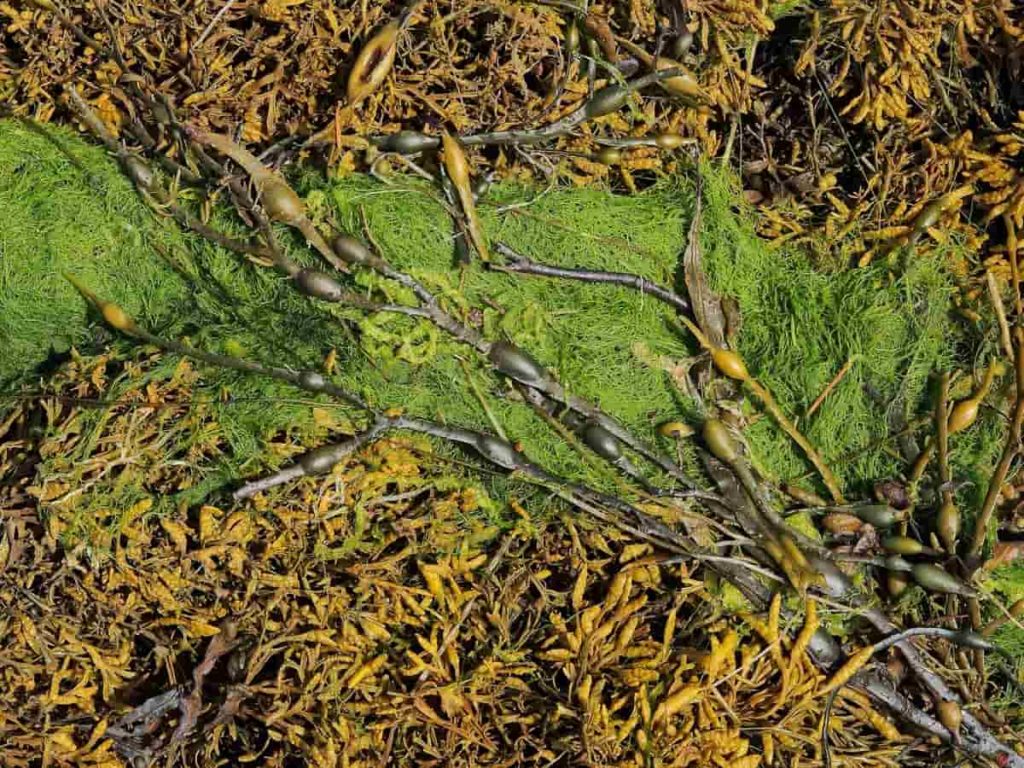
Livestock production
In livestock production, seafood products are commonly added to the feed to provide natural minerals and trace elements. When used in livestock feed, seaweed, including kelp, must be certified organic.
Plant hormones
Algae are known to contain plant hormones, and when seaweed extract is applied to plants, the crop shows similar responses to purified/synthetic plant hormones. It is because many plant hormones are easily broken down in light, heat, and oxidizing conditions (all of which an extract will experience from its extraction to delivery to the field); and when people have analyzed extracts of known plant hormones in relatively low concentrations.
Seaweed extracts contain plant hormone analogues. These analogues have different chemical structures to the corresponding plant hormone but produce the same/similar response when applied to the plant. As a result, positive growth responses such as cytokinin and auxin action are commonly cited.
Seaweed extract application time in agriculture
During the early growth stages of crops, flowering and fruiting stages. Repeat the treatment at 10 – 15-day intervals during the growing season as per nutritional requirements. Seaweed extracts can form a bridge between crops and fertilizers, balancing agricultural input markets and economic benefits. The extract prolongs the life of cut flowers if sprayed on them a day or two before cutting. Also, it can be used as a rooting solution.
Place the cutting in a liquid seaweed solution and water until roots appear, then plant. Water with the solution when planting seeds or transplanting. Seaweed extract also increases crop yield, improves plant resistance to frost and disease, increases the uptake of inorganic compounds from the soil, and strengthens resistance to stress conditions and fruit storage. Reduces the losses. It promotes vigorous growth and helps prevent pests and diseases on fruits, flowers, vegetables, lawns, etc.
The use of seaweed extracts in agriculture provides new ideas and solutions for sustainable agriculture and is widely used in organic agricultural production, and gradually improving the quality and efficiency of chemical fertilizers and pesticides has become an excellent resource. Interestingly, seaweed extracts have been repeatedly shown to promote plant growth, increase yield, and contribute to plant tolerance to abiotic and biotic stresses.
It is a promising and sustainable method that farmers can incorporate into their farming systems, even in integrated crop management that replaces synthetic inputs with seaweed extracts/products and chemical pesticides. Efforts can be made to reduce the use of seaweed extracts and increase early flowering and fruit set in various crop plants, for example, Tomato, Pepper, and Snap Bean.
This increase in the number of flowers and fruits inevitably led to an improvement in yield. For example, applying seaweed extract to Tomatoes significantly increased flower number, flower-to-fruit ratio, and fruit number and size. In many coastal areas, raw seaweed has been used for thousands of years to improve the productivity of farming systems.
In case you missed it: Ginger Farming Business Plan: A Guide to Production and Cultivation for Beginners

Seaweed extract uses in different crops
- Seaweed contains many inorganic nutrients essential for plant growth and is rich in plant growth amines, cytochrome C, indole compounds, and other physiologically active substances that benefit plant growth. Therefore, it is increasingly used in plant production as fertilizers, pesticides, and plant growth regulators.
- Seaweed extracts isolated from seaweed contain a wide range of macronutrient and micronutrient nutrients. In addition, it contains organic compounds such as growth hormones, amino acids, vitamins, betaines, cytokinins, and sterols that have played an essential role in developing the eco-friendly cropping system.
- Seaweed extracts can induce changes in physiological/biochemical processes in agriculture that are associated with nutrient acquisition and plant growth. For example, seaweed extract promoted early seed germination and establishment, increased root growth, increased leaf chlorophyll, improved crop performance, and tomato yield, and increased resistance to biotic/abiotic stress.
- Seaweed is a cheap and abundant resource in coastal agricultural areas and has excellent potential for commercial exploitation. (In addition, seaweed extract also affects soil’s physical, chemical, and biological properties. Seaweed extracts can bind soil metal ions to form colloids and protect the overall soil structure. Notably, the benefits of seaweed extracts are mainly on plant growth stimulation but not on nutrient supply. Thus, seaweed extracts can form a bridge between crops and fertilizers, balancing agricultural input markets and economic benefits.
- Seaweed extracts have been used in organic farming to stimulate growth and strengthen the quality performance of flower crops. The effectiveness of sea buckthorn extract is entirely due to plant hormone levels or otherwise crude nutrients (mainly cytokines). Foliar sprays of seaweed extract cause faster growth and higher yields of cereals, vegetables, fruit plants, and horticultural crops. In many commercial crops, spraying plants with seaweed extract is a popular practice to increase yield.
- Seaweed extract is also beneficial in flower set and fruit production. High fruit quality has been recorded for many herbaceous and woody crops. Seaweed contains significant traces of potassium and natural hormones, making it a hearty fertilizer that strengthens roots and increases disease resistance. Its smell repels many unwanted bugs and insects. A ‘fighter’ plant can be obtained if a seaweed organic fertilizer is applied to the plant. The plant will show more resistance to diseases and pests like greenflies and whiteflies, and its growth pattern will improve.
Seaweed extract application tips in agricultural production
The use of seaweed extract in agricultural production of crops and vegetables has yielded good results. It can promote seed germination, crop growth, and development, enhance stress resistance, increase yield, and improve quality. Growing plants and regular watering quickly deplete growing medium nutrients. It has the right balance of nutrients and seaweed to stimulate growth. Feeding year-round is beneficial because the constant heat in our homes keeps houseplants growing year-round.
As a basal feed, seaweed extract powder improves soil structure and promotes natural flora and fauna. As a primary use, it is an excellent supplement to chemical fertilizers. It adds humus to the soil. It improves soil fertility as nutrients and hormones are directly available to plants in their natural form. Seaweed extracts have shown positive results in many applications. There are probably other applications where they haven’t made significant improvements, but they get less, if any, publicity.
When seaweed extract is applied to fruit, vegetable, and flower crops, some improvements include higher yields, increased soil nutrients, increased resistance to certain pests like red spider mites and aphids, better seed germination, and frost. However, there have been many, many controlled studies to show the value of using seaweed extract with mixed results.
In case you missed it: Tomato Farming Business Plan: A Production and Cultivation Guide for Beginners
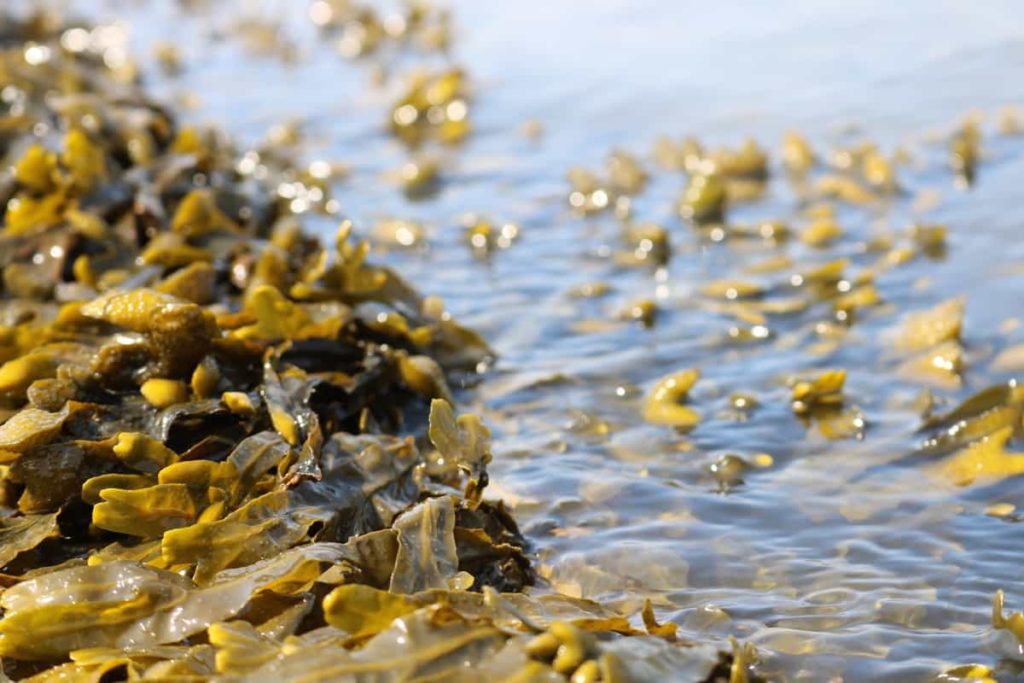
For example, they can improve the yield of one potato cultivar but not another crop grown under the same conditions. No one is sure why they are effective, despite many studies. The trace element content is insufficient to account for improved yield etc. Most seaweed extracts used as biostimulants in agriculture are extracted from brown algae species, especially Ascophyllum nodosum.
It grows in the intertidal zone of the Northern Hemisphere; it has been suggested that the stressful conditions of repeated exposure to desiccation and temperature fluctuations by the seaweed in this habitat, Combined with the slow growth rate, the high concentration of bioactive compounds in Ascophyllum. In comparison, tropical species, or kelps that grow further out in the ocean, produce lower concentrations of these biological compounds and higher levels of cellulose.
A compound that is neither new nor capable of stimulating plant growth. Liquid seaweed extract is used at a very high dilution rate resulting in only a minimal amount of material being applied to a specific area. Therefore, the active substances in seaweed extracts should be able to exert an effect at low concentrations. Trace elements have been suggested as possible active ingredients, and the amount of substances used is a negligible proportion of total crop requirements.
The presence of plant hormones (substances that occur naturally in plant tissues in small amounts and are involved in, among other things, growth regulation) are believed to be responsible for at least some of the observed effects. In addition, commercially available seaweed extracts have been shown to have high levels of cytokinin-like activity.
Effect of seaweed extract in agriculture
Promote seed germination
Seaweed extract has a significant effect on promoting seed germination. Plant seeds treated with seaweed extract had significantly higher respiration and germination rates. Under appropriate concentration conditions, it can also promote crop root production, fruit development, new organ growth and tissue differentiation, and cell growth.
Nutrient-rich
The active seaweed compost contains a large amount of non-nitrogenous organic matter, 40 minerals like potassium, calcium, magnesium, iron, zinc, and iodine, and abundant vitamins, which are essential for terrestrial plants and are particularly unique to seaweeds. Polysaccharides are unique to seaweeds. Alginic acid, polyunsaturated fatty acids, and various natural plant growth regulators can stimulate the production of non-specific active factors in plants.
Improve Soil
Seaweed extract is a natural biological system that works in harmony with the plant and soil ecosystem. It can increase soil organic matter through soil or plants. These microorganisms can act as catalysts in the circulation of plant microbial metabolites, increasing soil biological effectiveness.
In case you missed it: How to Choose the Right Tractor for Your Farm: Best and Top Tips for Beginners
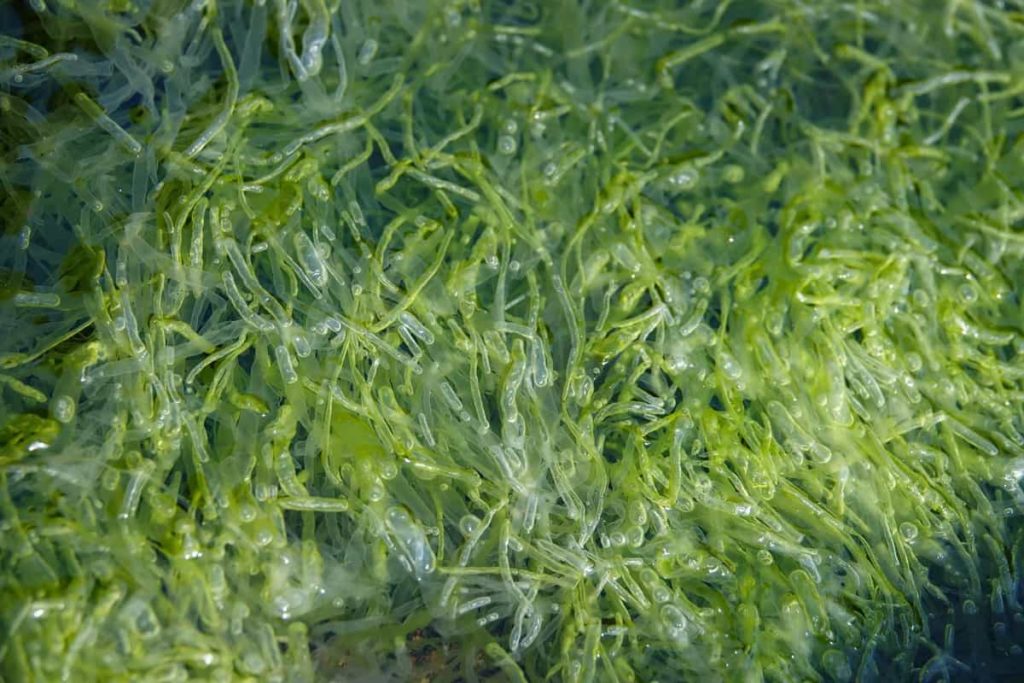
Increase plant yields
Applying seaweed extract can increase the yield of different crops to different degrees. Different types of flowers proved that the seaweed extract promoted early flowering and significantly increased the number of flower buds, and the increase rate could reach 30%-60%.
Increase plant quality
Using seaweed extract can improve the quality of agricultural products to varying degrees. It can improve the appearance quality (color) of Carrots. It can reduce the crude fiber content of Celery and increase the organic acid content and soluble solids content of Tomato.
Enhancing Crop Resistance
Apply seaweed extract to Peppers, Tomatoes, Cucumbers, Eggplant, Carrots, and other vegetables. Using seaweed fertilizers can improve crop disease resistance, increase the antiviral efficiency of tobacco mosaic virus, reduce the incidence of tomato gray mold, and reduce rice blast disease.
In addition, the mixed application of seaweed extracts and chemical fertilizers can improve soil structure, increasing soil respiration and water retention capacity by increasing fertilizer efficiency. Compared to conventional fertilizers, seaweed fertilizer is more efficient, easy to absorb, and environmentally friendly.
Use as a plant growth regulator
Plant growth regulators (PGRs) are chemicals used to alter plant growth, such as increasing branching, suppressing shoot growth, increasing return flowers, removing excess fruit, or altering fruit maturity. They also induce phytohormonal responses due to their specific constituents and interactions with plant growth regulators. The main active substances in seaweed and seaweed plant growth regulators are auxin (IAA and IBA), cytokinin, gibberellin, abscisic acid, ethylene, and betaine.
These physiologically active substances can directly participate in the transport of organic and inorganic substances in plants. In addition, their presence strengthens the absorption of nutrients by crops, stimulates the production of non-specific active factors in plants, and regulates the balance of endogenous hormones, which is essential for plant growth.
Conclusion
Farmers using these seaweed extracts repeatedly reported positive crop yield and quality results. As a result, using seaweed and seaweed extracts in agriculture is becoming increasingly popular worldwide. However, their utility can be fully exploited for crop production only through further research on their biochemical nature and mechanism of action. Seaweed extracts are also known to protect plants against several biotic and abiotic stresses and offer the potential for field application.
- How to Make Houseplants Bushy: Effective Tips and Ideas
- Innovative Strategies for Boosting Coconut Pollination and Yield
- Pollination Strategies for Maximum Pumpkin Yield
- The Complete Guide to Chicken Fattening: Strategies for Maximum Growth
- Natural Solutions for Tulip Problems: 100% Effective Remedies for Leaf and Bulb-Related Issues
- Revolutionizing Citrus Preservation: Towards a Healthier, Greener Future
- Natural Solutions for Peony Leaf and Flower Problems: 100% Effective Remedies
- Maximizing Profits with Avocado Contract Farming in India: A Comprehensive Guide
- Natural Solutions for Hydrangea Problems: 100% Effective Remedies for Leaf and Flowers
- The Ultimate Guide to Choosing the Perfect Foliage Friend: Bringing Life Indoors
- From Sunlight to Sustainability: 15 Ways to Use Solar Technology in Agriculture
- The Ultimate Guide to Dong Tao Chicken: Exploring from History to Raising
- The Eco-Friendly Makeover: How to Convert Your Unused Swimming Pool into a Fish Pond
- Mastering the Art of Delaware Chicken Farming: Essentials for Healthy Backyard Flocks
- 20 Best Homemade Fertilizers for Money Plant: DIY Recipes and Application Methods
- How to Craft a Comprehensive Free-Range Chicken Farming Business Plan
- Brighten Your Flock: Raising Easter Egger Chickens for Beauty and Bounty
- How to Optimize Your Poultry Egg Farm Business Plan with These Strategies
- Subsidy for Spirulina Cultivation: How Indian Government Schemes Encouraging Spirulina Farmers
- Ultimate Guide to Raising Dominique Chickens: Breeding, Feeding, Egg-Production, and Care
- Mastering the Art of Raising Jersey Giant Chickens: Care, Feeding, and More
- Ultimate Guide to Raising Legbar Chickens: Breeding, Farming Practices, Diet, Egg-Production
- How to Raise Welsummer Chickens: A Comprehensive Guide for Beginners
- How to Protect Indoor Plants in Winter: A Comprehensive Guide
- Ultimate Guide to Grow Bag Gardening: Tips, Tricks, and Planting Ideas for Urban Gardeners
- Guide to Lotus Cultivation: How to Propagate, Plant, Grow, Care, Cost, and Profit
- Agriculture Drone Subsidy Scheme: Government Kisan Subsidy, License, and How to Apply Online
- Ultimate Guide to Raising Araucana Chickens: Breed Profile, Farming Economics, Diet, and Care
- Bringing Hydroponics to Classroom: Importance, Benefits of Learning for School Students
- Ultimate Guide to Raising Polish Chickens: Breed Profile, Farming Economics, Diet, and Care
- Ultimate Guide to Raising Australorp Chickens: Profile, Farming Economics, Egg Production, Diet, and Care
- Silkie Chicken Farming: Raising Practices, Varieties, Egg Production, Diet, and Care
- Sussex Chicken Farming: Raising Practices, Varieties, Egg Production, Diet and Care
- Homemade Feed Formulations for Livestock: Discover Cost-effective Starter to Finisher Feed Recipes
- 20 Best Pig Weight Gain Supplements: Top Swine Weight Gain Formulas
- Ultimate Guide to Elderberry Farming: Propagation, Planting, Yield, Cost, and Profit